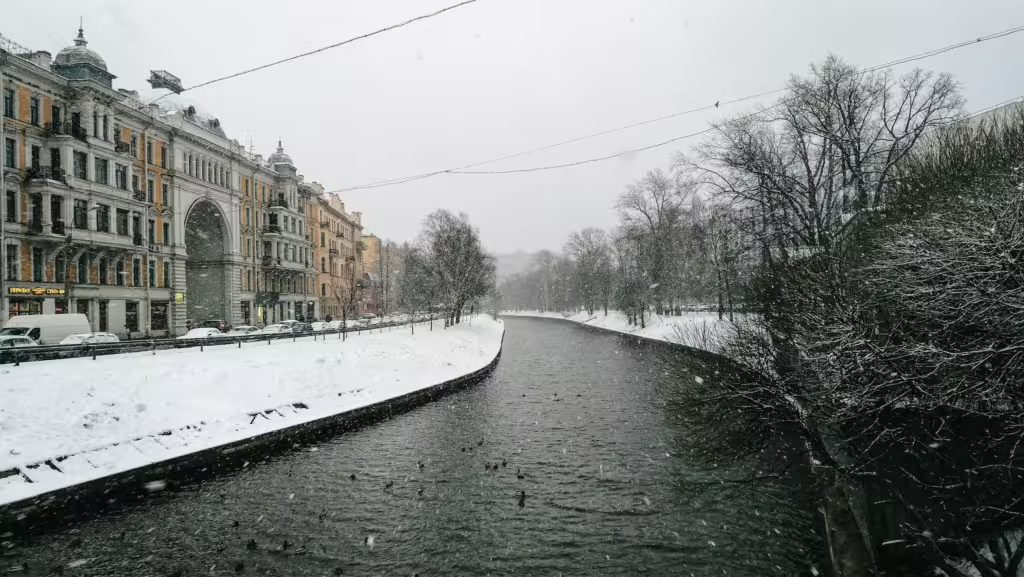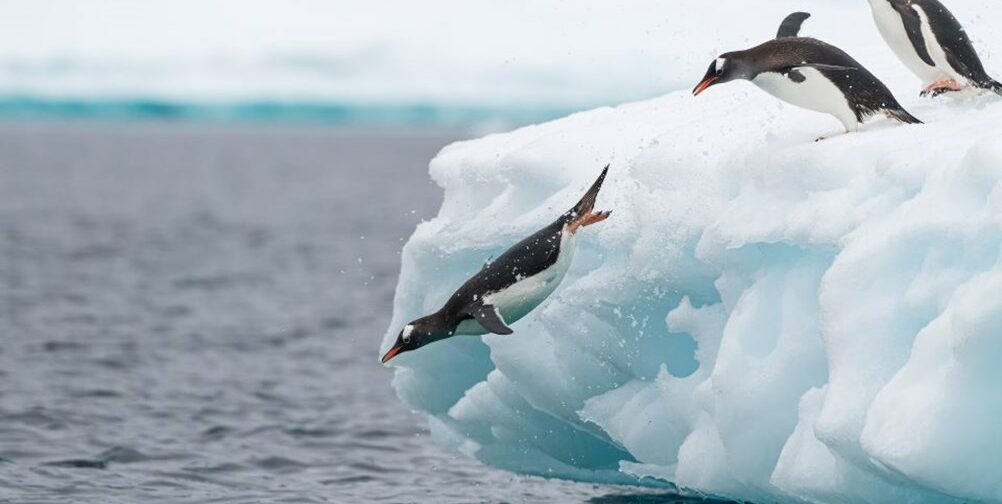Global warming means polar ice caps melting which means sea levels rising which means ... well let's back up a step. Are the polar ice caps melting? The Arctic (except Greenland) doesn't matter for sea levels because the ice is floating. It's the Antarctic that really matters because so much ice is on land that if it melts it will raise sea levels. If. A new historical reconstruction of the vast West Antarctic Ice Sheet (WAIS) has turned up a puzzle: the ice was retreating during the cold years of the 19th century but from 1900 to 2010, during the supposed global warming crisis, it has been growing at a statistically significant rate. Something to keep in mind if an alarmist is trying to sell you beachfront property at the south pole.
The new study is not just interesting because it finds trends in the surface mass balance of Antarctic ice that run counter to boilerplate alarmist rhetoric, not to mention climate model projections. It’s also interesting because it finds that the trends in the ice on the little Antarctic peninsula run counter to those on the western mainland. Almost as if climate were complex.
The Antarctic peninsula is the relatively tiny stretch of land that juts up towards Argentina. Since the eco-tourist crowd usually only get as far as the tip of the peninsula, then race home to report that they saw some ice falling off a cliff, it's a useful reminder that what happens there is not a good indicator of what is happening on the rest of the continent. (And NB in addition to the WAIS there’s an even bigger East Antarctic Ice Sheet that seems insolently to have been gaining mass lately even though models told it to melt and drown us all.)
The authors of the new study also looked at how and whether the behaviour of the WAIS correlates with large scale warming and cooling patterns in the global climate system, such as the El Nino cycle. They find that any correlations are "temporally unstable" (which seems to be how academics say “not really there”): such correlations come and go over time, and the major climate oscillations contribute little to variations in the ice sheet mass balance.
The modern creed on climate change, against which we proudly declare our heretical stance, says that says the science of climate change is simple, the mechanisms are all well-understood, the effects are all bad and the "solutions" are easy and painless. We tackled the simple physics myth in a recent video. The discovery that Antarctic ice is a complex system unto itself that doesn't merely follow the beat of the rest of the global climate system or obey the dictates of climate models is a small part of tackling the second tenet of the creed.



Your summary is misleading. Surface mass balance (SMB) attempts to measure (it is really only a crude estimate inferred by satellite imagery) total ice accumulation by precipitation minus outflow by surface run-off. SMB is distinct from total mass balance. Total mass balance includes ablation at the coastline and calving loss. The total mass balance is typically estimated by satellite gravimetric data and shows a net mass loss for the whole of Antarctica for the period of 2002-2010 (https://www.nature.com/articles/nature11621). The satellite data for 2002-2010 shows the Antarctic peninsula losing mass while the WAIS is roughly in balance and the EAIS gained mass.
Despite the overall mass loss, we should not expect to drown any time soon. The estimate of sea level rise due to Antarctic melting is 0.19 mm/yr. (https://www.nature.com/articles/nature11621). Greenland has been melting at a greater rate than Antarctica and is estimated have contributed about 0.4 mm/yr to sea level rise over the period of 1992-2011 (https://ntrs.nasa.gov/archive/nasa/casi.ntrs.nasa.gov/20140006608.pdf). Interestingly though, Greenland may have had a slight total mass gain in 2018 (http://nsidc.org/greenland-today/).
It is certainly a fair conclusion that measuring glacier mass balance is a non-trivial problem.
A counter comment to that from Blaine Geddes. I don't find a lot of the so called scientific studies to be credible. In the case of satellite (remote sensing) of sea levels or ice volumes to be less than credible. The number of steps required to perform these calculations and the number of parameters and variables in each sub-calculation each with errors and uncertainties which accumulate means that each individual measurement of the has error bars in the meters to tens of meters. So a typical measurement of the height of the sea of surface of the ice involves measurement of the mean path time of a radar signal from the satellite to the surface and back as well as precisely knowing the position altitude and speed of the satellite; and knowing elements about the surface that affect selectivity of the signal (such as wave height in the case of the sea). The timing of the signal passing through the atmosphere is affected by humidity and other variable conditions in the atmosphere. Assumptions in about the orbit and errors in positioning and the gravimetric acceleration of the satellite all affect precision and accuracy. In the case of snow and ice there is a general assumption about the nature of its reflectivity too. Whilst using multiple frequencies and multiple measurements from multiple paths and cross-calibration between multiple satellites on crossing paths can do wonders to reduce errors, I don't believe that the claims they are making are inside the error bars of all those measurements, parameterisations or other assertions. Other reported 'facts' about change in ice-mass at the poles comes from pure model data (often from models which have shown to deviate significantly from reality because of poor understanding of the physics, the degree of parameterisation of small-scale phenomena and poor calibration. I would discount reporting these as gospel accounts of what is truely happening at the poles (or anywhere else for that matter); and lastly and probably the easiest to check out evaluations of trends in snow accumulations from more reliable short term weather forecast models and surface observations... although in this latter method the amount of ablation and ice loss at the coast is harder to evaluate... in general more trustworthy data shows a degree of cooling of the main antarctic continent over the past decade and an increase in snow fall... (for example in the natural inter-decadal cycles of ocean temperatures we see that whilst warmer seas do encourage more melting around the edges of ice sheets; warmer oceans also tend to cause more moisture to go up into the atmosphere and come down as snow in the interior... the degree to which one offsets the other and the amount of ice melt is the other contentious science... depending on which data and data analysis methods you use and who pays your salary. I would suggest that on the whole there is a whole lot of ice in greenland and antartica which isn't going anywhere fast; that if anything trends have shown some cooling in recent years and that there are higher amounts of snow fall... so on the whole I would believe that the ice-mass should be increasing (not decreasing as reported by models and remote sensing based articles)...
I am an interested amateur observer these days, but am keen that the debate remain true to evaluating how much the a given data set can be used to infer something; how well it corroborates or deviates from other more easily observable data trends; whether the article shows that data has been collected and evaluated using the scientific method or not. I studied meteorology and oceanography at university before moving into electrical engineering and power systems architecture (one of the industries being turned upside down and harmed by the climate abatement policies)... I've been around weather, climate, electrical power systems and energy policy for 25 years now and I don't like what I am seeing in any of these fields.